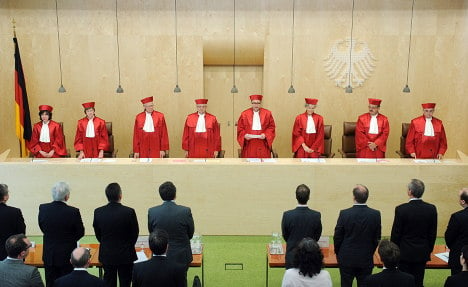German lawmakers are due to ratify both the pact and the bailout fund on June 29, but President Joachim Gauck’s decision to delay signing meant the planned timing for the European Stability Mechanism (ESM) bailout fund to enter into force on July 1 would no longer stand.
Many in the German media supported Gauck’s decision to give the Constitutional Court up to three weeks to consider a legal challenge put forward by the far-left Linke party.
In doing so, the President had skilfully “avoided an unprecedented constitutional conflict,” the Süddeutsche Zeitung said on Friday.
By buying the court enough time to properly examine the challenge, both Germany’s highest institutions could “escape the accusation of destroying the Euro with a rushed decision.”
And given what is at stake for Germany, more scrutiny of the the planned ESM permanent bail out fund cannot be a bad thing, said the Münchner Merkur.
After all, Germany will be responsible for 27 percent of contributions to the ESM fund – expected to contribute €21.7 billion in cash and provide guarantees worth a further €168.3 billion.
It is for the ESM “that Germany has got itself up to the neck in financial adventures,” the Munich-based paper added.
Daily paper Die Welt also showed sympathy with the President, who it said had taken a “political risk” when called upon to address “the core question of how German democracy and European politics can coexist in peace.”
“In the case of the bail out law, Gauck alone has the answer and also the responsibility. Only his signature gives it legal force in Germany.”
It is at times like this, said the paper, that Presidents show their “enormous power,” which is enough to challenge even the will of the Chancellor.
And the move is indeed a further blow for Chancellor Merkel, whose “room for manoeuvre is getting smaller,” said the left-leaning, Hannover-based Neue Presse.
Having – after long negotiations – finally succeeded on securing support from the opposition parties for the fiscal pact on Thursday, Chancellor Merkel was immediately dealt another “stumbling block,” wrote the paper.
Chancellor Merkel – and those looking to rescue the euro – had been hoping for a “strong signal from Germany” said mass-circulation daily Bild. Instead, all they got was “a hammering” from the Constitutional Court.
The Local/DPA/jlb



 Please whitelist us to continue reading.
Please whitelist us to continue reading.
Member comments